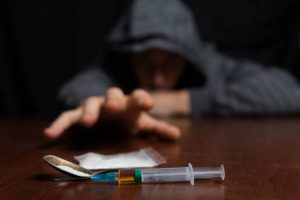On Drug Abuse and Addiction
A drug is any substance that is used to prevent, diagnose, treat, or relieve symptoms of a disease or abnormal condition. Drugs can affect how the brain and the rest of the body works and can cause changes in mood, awareness, thoughts, feelings, or behaviour.
Drug abuse means the excessive use of psychoactive drugs such as alcohol, pain relief or other nonmedical medicines legal and illegal despite social, psychological, and physical problems that may arise from their use. People who deal in illegal drugs will do so even though it can lead to physical, social, or emotional harm. The aim of illicit trafficking is purely for financial gain and there isn’t any conscience involved.
Why do people abuse drugs? The answer lies in what they gain from using the drug because what they’re really addicted to is that which they seek. They seek a cure. It may be an escape from reality, denial of current circumstances, suppression of emotional, physical, mental anguish, finding relief, peace, calm or a euphoric state that is unavailable otherwise. The use/abuse of any drug will be an attempt to fill a void within themselves. The void may be physical, mental, emotional, or spiritual.
This is vital to understand because treating drug abuse in the long term isn’t easy. It’s not about the specific drug or a particular drug being addictive, but rather WHY the person is seeking what they lack. A person may not be addictive. The drug itself may not be addictive. But the effects the drug gives are what becomes addictive, and this MUST be understood. Most addictions begin in childhood trauma and usually start as a method of coping with the trauma. There are of course varying degrees of trauma and every single person, with their unique genetic makeup, their upbringing, their parents, their unique physiology, and emotional constitution, will react to trauma in different ways.
It’s imperative that when faced with a substance-abuse situation the sooner it’s identified and accepted (not condoned) the better. If it can be caught early on in life the chances of getting to the root cause are greater and sustainable long-term solutions can be put in place and maintained. Youth are at higher risk than nonusers for mental health problems, including depression, conduct problems, personality disorders, suicidal thoughts, attempted suicide, and suicide. The key is awareness and observation of those around you. Pay attention to loved one’s behaviour, what is said and done, anything that appears deviant or abnormal and anything that is not said and done. Listen. Observe.
If all the above is understood, then substance abuse can be prevented in some cases. Prevention is always better than the cure and especially is any type of addiction. It’s an exceptionally tough nut to crack!
- Understand how substance abuse develops.
- Avoid temptation and peer pressure.
- Seek help for any type of mental illness.
- Seek help in developing self-awareness.
- Be aware of your value and worth – examine risk factors and protect yourself.
- Strive for a well-balanced well- planned life.
- Ask for help if feeling unsafe, insecure, or unsure. It’s ok to be vulnerable. Its ok to be in trouble. It’s ok to mess up. This really is part of life. It’s a journey that’s filled with suffering. No one escapes suffering of some type. NO ONE!
If a solution must be found then structured treatment programs, substance abuse counseling, and 12-Step programs are helpful. While they are not the only sources of help, they are the most consistently effective, especially when combined in a systematic fashion. Treatment and counseling provide structure, emotional support, and intervention. But in the end, it’s the understanding of WHAT ‘CURE’ the person is finding in the addiction that is key. Self-awareness and self-development are what will eventually conquer the root problem.
“When my client has learned to answer their own questions, my job is done”
Need to know more? WhatsApp on +27823740940 or email on barbara@barbarascogings.com to book a complimentary 20-minute session to discuss this in more detail.

